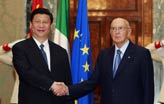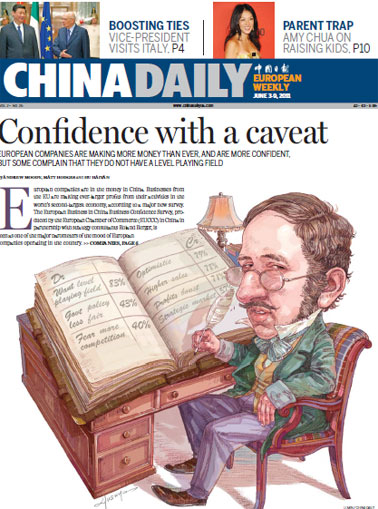Economy
OPEC may increase oil supplies this week
Updated: 2011-06-07 08:26
By Amena Bakr and Richard Mably (Agencies)
Data indicating that economic recovery may be stalling in the West is worrying OPEC's core Gulf members, Saudi Arabia, Kuwait and the United Arab Emirates.
Saudi and its fellow Gulf producers will argue that oil prices are undermining the economic growth that fuels demand for OPEC crude and that more supply is needed to balance demand in the second half of the year.
But Riyadh is not prepared to force-feed crude on to the market to push prices aggressively lower.
"We need to increase by at least 1 million barrels a day," a Gulf OPEC delegate told Reuters in Vienna on Sunday. "We're not happy with current prices."
"We want to meet growing demand in the second half of the year without flooding the market," said a delegate from another Gulf country.
Global benchmark Brent crude was valued just below $116 a barrel on Friday having risen from $90 a barrel when OPEC last met in December and decided to do nothing.
Saudi Arabia's Oil Minister Ali al-Naimi, the first minister to arrive in Vienna for Wednesday's meeting of the Organization of the Petroleum Exporting Countries, had no comment for waiting reporters.
But his presence in the Austrian capital so early, along with delegates from fellow Gulf Arab nations, will permit an early exchange of views among those countries who are normally most dovish on prices.
They may face opposition from OPEC's leading price hawks, Iran and Venezuela, who argue high prices are justified and that, in any case, OPEC is powerless to prevent speculators from controlling price direction.
Iran's cause won't be helped by the fact that it has no oil minister and has yet to decide who will represent OPEC's second-biggest producer at the meeting.
An OPEC advisory group of economists agreed on Friday that demand for OPEC oil in the second half of the year warranted an increase in supply.
Anything less than a million-barrels-a-day (BPD) increase may be regarded by the oil markets as a token gesture.
OPEC pumped 29 million bpd in April. According to the latest monthly report from OPEC headquarters in Vienna, demand for its crude will rise to 30.66 million bpd in the second half of the year on the 89-million-bpd world market.
That will suggest OPEC needs to raise output by 1.7 million bpd from current production levels to balance global supply and demand.
Confusing the equation though, is that actual OPEC output is 1.4 million bpd in excess of its obsolete official target, set in December 2008 during the depths of recession.
So if OPEC agrees an increase, oil traders will want to know whether it is simply an increment on paper to legitimize existing supplies, or a real increase on top of current output.
Further complicating the picture is the confusion over who, if anyone, will represent war-torn Libya at OPEC after the defection of its leading oil official Shokri Ghanem.
Libyan supplies have been cut from world markets since rebellion broke out in February. Tripoli - normally a hawk on prices - for once won't have much say over OPEC policy.
E-paper

Harbin-ger of change
Old industrial center looks to innovation to move up the value chain
Chemical attraction
The reel Mao
Improving app-iness
Specials

Vice-President visits Italy
The visit is expected to lend new impetus to Sino-Italian relations.

Birthday a new 'starting point'
China's national English language newspaper aims for a top-notch international all-media group.

Sky is the limit
Chinese tycoon conjures up green dreams in Europe with solar panels
